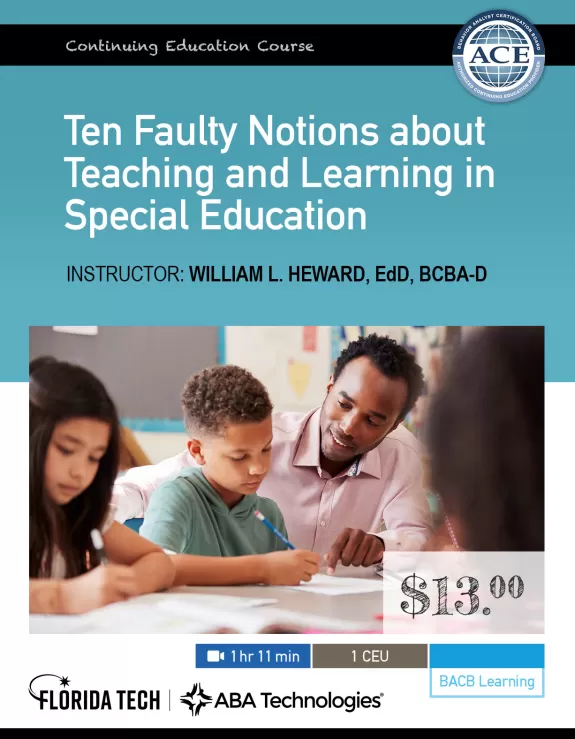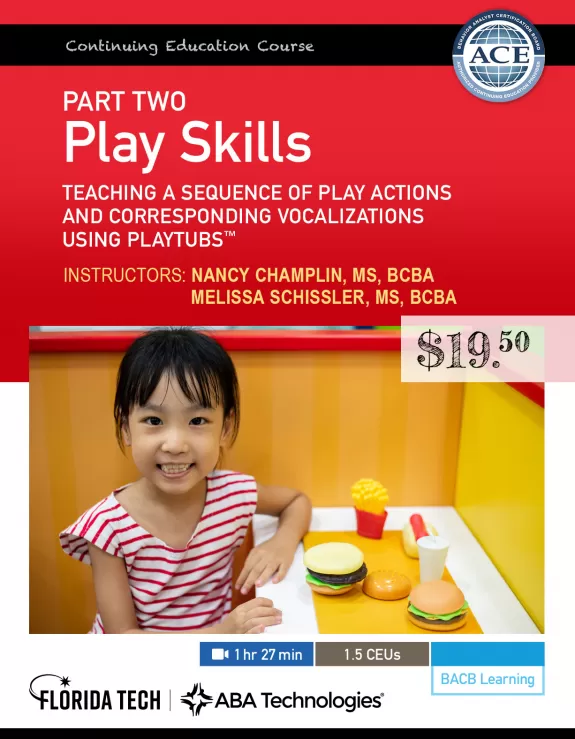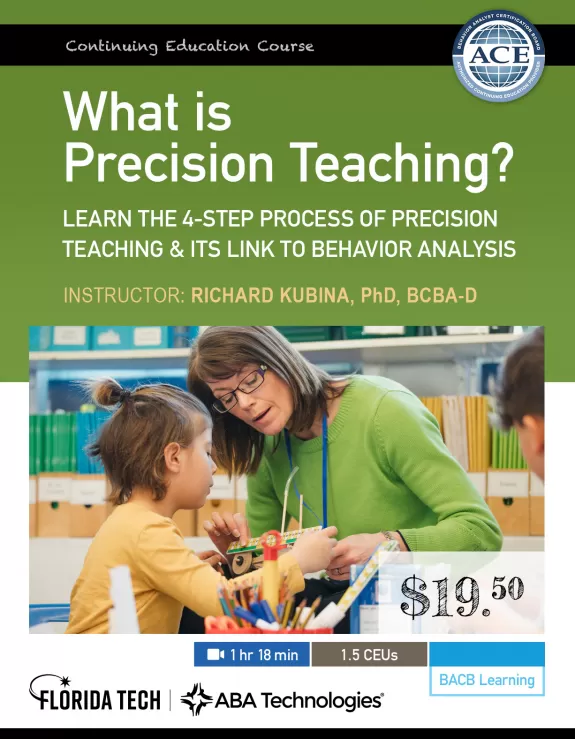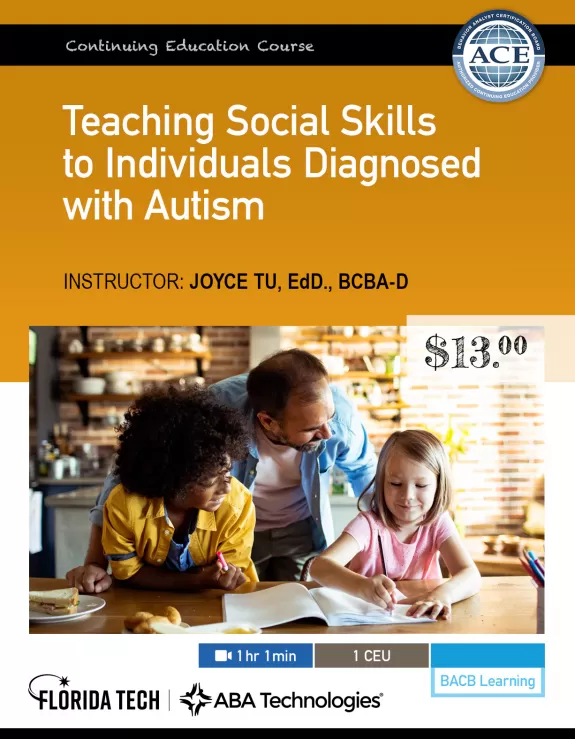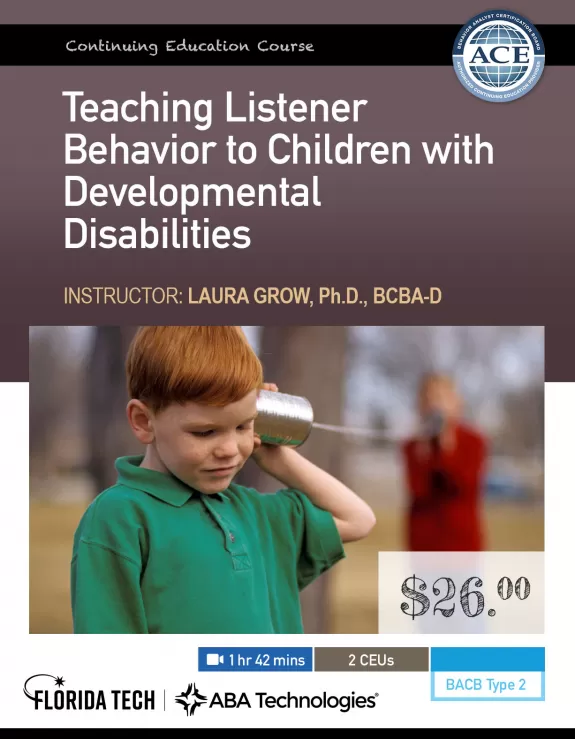Ten Faulty Notions about Teaching and Learning in Special Education
When practiced most effectively and ethically, special education is also characterized by the use of research-based teaching methods, the application of which is guided by direct and frequent measures of student performance.
Abstract
Teachers and behavior analysts are often trained to think differently about classroom contingencies. At times the various ideas are in conflict or odds with one another, and in some cases, they are incorrect. In this course, Dr. Bill Heward reviews ten common assumptions special educators and behavior analysts make—yet prove to be incorrect, based on a growing body of research literature. He counters this with the matching correct notions that research supports, which can guide instruction and classroom management. If you’re a teacher, learn to think through and challenge assumptions that are contradicted by recent research. Behavior analysts can learn to counter each misconception using research to support the correct findings.By utilizing more evidence-based practices, you can improve your own instruction, interventions, and classroom management.
Learning Objectives
What you’ll learn in the course and be able to do afterward
Given the faulty notions of teaching and learning that hinder instructional effectiveness you will discover how to
- recognize examples of these ten notions in the classroom;
- understand how each one hinders optimal learning outcomes;
- identify four reasons teachers continue to operate under these misconceptions;
- apply eight research-based instructional practices for effective teaching;
- learn about research-based recommendations that teachers can implement in their practice;
- use teacher-friendly language to describe the practice and generate situation-specific examples;
- successfully apply these recommended practices in the classroom.
Partnership
This course is delivered through Florida Tech. Clicking "Enroll Now" will take you to Florida Tech’s website where you can Add to Cart, Checkout, and complete the course. Come back to our website for podcasts, blogs, courses, and content.
